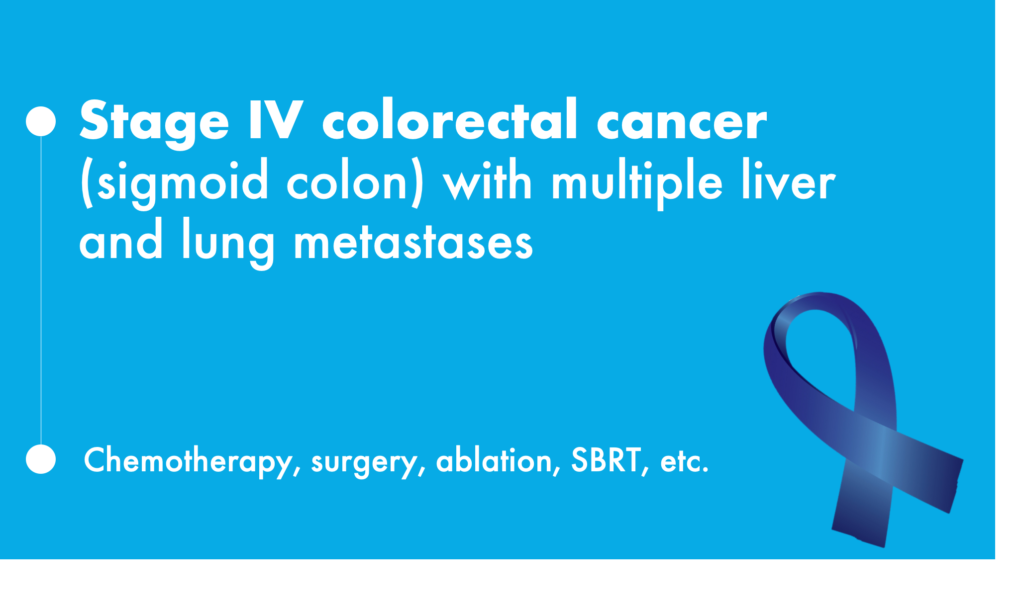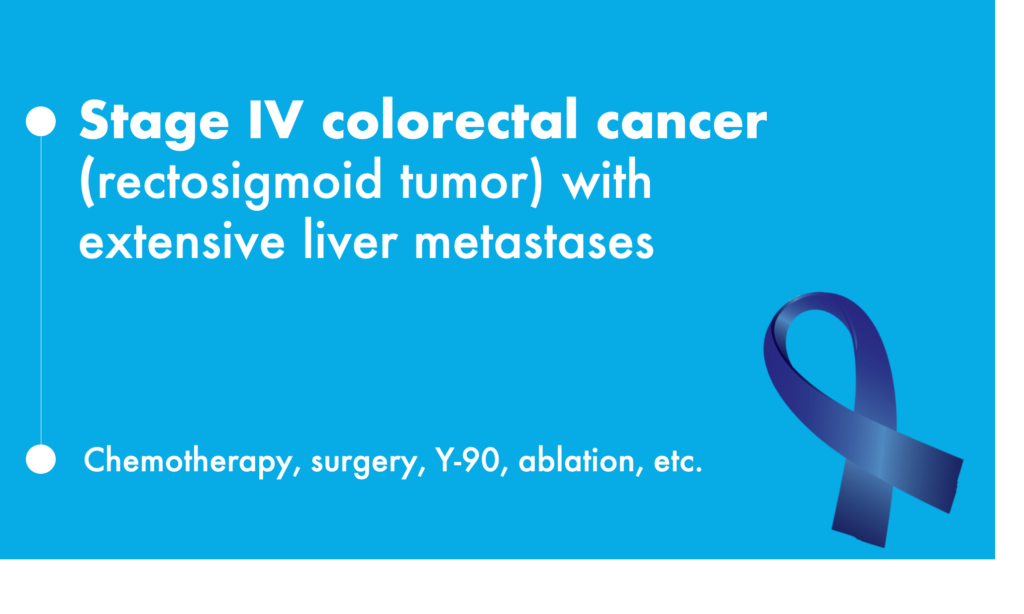Journey of Resilience
A Patient’s Journey from Stage IVB Lung Cancer to Complete Response
How a Late-Stage Diagnosis Turned into a Story of Hope and Resilience
A man in his early 50s, with a history of heavy smoking (35 packs per year) but no other major health issues, was rushed to the emergency room after suffering a generalized tonic-clonic seizure. A brain MRI revealed three lesions, the largest measuring 16.8 mm in the temporal lobe, along with swelling that caused a midline shift. Immediate treatment with anti-epileptic medication and high-dose corticosteroids was started while doctors searched for the underlying cause.
Further testing, including a thoracoabdominal CT scan, revealed a concerning lung nodule in the upper right lobe and an enlarged lymph node in the left carotid-jugular space. A biopsy confirmed lung adenocarcinoma, with additional tests showing metastases in the bones and lymph nodes. Molecular testing did not identify targetable mutations, but immunohistochemical analysis showed a high PD-L1 expression (70%), making the patient a candidate for immunotherapy. The final diagnosis was stage IVB lung cancer.
The patient first underwent whole-brain radiotherapy (WBRT) to address the brain lesions. Due to high corticosteroid use, initial immunotherapy was delayed, and he began chemotherapy with carboplatin and pemetrexed. After four cycles, follow-up scans showed a positive response: the lymph node involvement had resolved, and the lung tumor had shrunk significantly.
However, new liver metastases appeared, prompting a switch to second-line treatment with pembrolizumab, an immunotherapy drug. After three cycles, scans showed a partial response, and by the sixth cycle, the liver lesions had disappeared. Over time, the pulmonary tumor continued to shrink, eventually stabilizing as a non-active fibrous nodule. The patient received a total of 53 cycles of pembrolizumab, maintaining a complete response in the brain, liver, and lungs with only mild side effects (a temporary skin rash).
A PET scan performed one month after stopping treatment showed no active cancerous lesions, marking a complete response. The patient remained in remission, with no signs of disease progression.
Diagnosis
Stage IVB lung adenocarcinoma with brain, bone, and liver metastases
Biomarker profile: High PD-L1 expression
Treatment
Whole-brain radiotherapy, chemotherapy (carboplatin + pemetrexed), and immunotherapy (pembrolizumab)
Outcome
Complete response, with no active cancer detected post-treatment
Source: Costa, M., & Magalhães, H. (2024). Complete and long-lasting response to immunotherapy in a stage IV non-small cell lung cancer with brain metastasis. Oncoscience, 11, 92.


